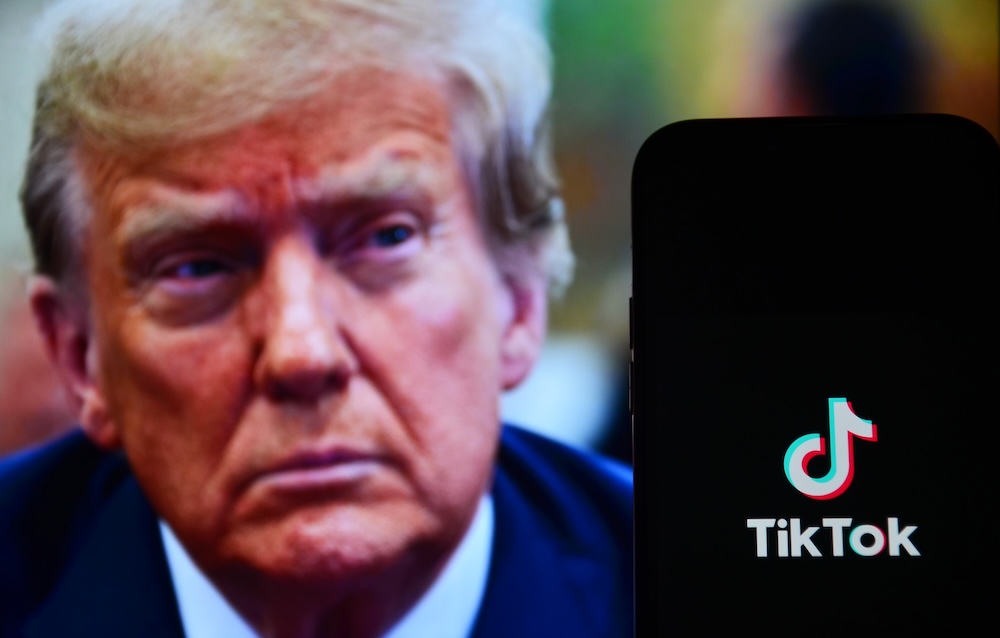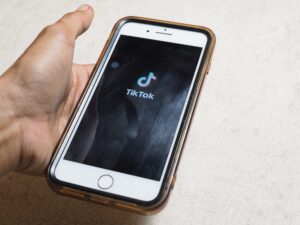Politics
Trump Asks Supreme Court To Delay Potential TikTok Ban Deadline

President-elect Donald J. Trump has urged the Supreme Court to delay a looming deadline that could result in a nationwide ban of TikTok, the immensely popular social media app, unless its Chinese parent company, ByteDance, sells its U.S. operations to an American entity. The deadline, set for January 19 — just one day before Trump’s inauguration — has prompted a constitutional clash over national security, free speech, and executive authority.
In a 25-page amicus brief filed on Friday, Trump requested the justices to issue a stay on the deadline, arguing that the issue requires a more measured resolution. The President-elect contended that his incoming administration should have the opportunity to negotiate a political solution that addresses the national security concerns raised by the app’s Chinese ownership while preserving the free speech rights of TikTok’s 170 million American users.
“This case presents an unprecedented and novel tension between free-speech rights on one side and foreign policy and national-security concerns on the other,” the brief states. “As the incoming Chief Executive, President Trump has a particularly powerful interest in and responsibility for those national-security and foreign-policy questions, and he is the right constitutional actor to resolve the dispute through political means.”
The Protecting Americans from Foreign Adversary Controlled Applications Act mandates ByteDance to divest its U.S. TikTok operations by January 19 or face an effective shutdown of the app in the United States. The federal government argues that TikTok poses a significant threat to national security, citing concerns that the Chinese government could exploit the app to surveil Americans or manipulate public discourse.

TikTok application on a smartphone
Critics of the Act, including Trump, counter that the government’s concerns are insufficiently balanced against the constitutional rights of TikTok users. The brief highlights the app’s role as a platform for free expression, emphasizing its importance to political discourse, cultural connection, and economic livelihood.
“President Trump also has a unique interest in the First Amendment issues raised in this case. Through his historic victory on November 5, 2024, President Trump received a powerful electoral mandate from American voters to protect the free-speech rights of all Americans—including the 170 million Americans who use TikTok,” the brief said.
Trump’s filing also raises concerns about legislative overreach, arguing that the Act infringes on the authority of the Executive Branch to manage foreign policy. The brief points out that the deadline, set by Congress, undermines the new administration’s ability to negotiate a resolution with China and TikTok’s owners. “This is a matter where the Nation must speak with one voice,” the brief asserts, referencing the President’s unique role in foreign affairs.

The case has attracted significant attention for its potential to establish new legal precedents on the regulation of social media and foreign-owned technology companies. Trump’s brief urges the Court to prioritize a careful, deliberative approach. Citing previous cases where the Court allowed more time for political negotiation.
TikTok, the widely popular video-sharing app owned by Chinese company ByteDance, faces the prospect of a U.S. ban under escalating national security scrutiny. Concerns over potential Chinese government access to Americans’ data have prompted Joe Biden to sign legislation requiring ByteDance to divest TikTok’s U.S. operations by January 2025, or face prohibition.
TikTok has filed legal challenges, arguing the law infringes on constitutional rights, including the First Amendment. Despite these efforts, a federal appeals court upheld the legislation in December 2024. TikTok plans to appeal to the Supreme Court, seeking an injunction to prevent enforcement of the ban during ongoing litigation.
Public sentiment on the ban is evolving. Recent polls reveal declining support for the measure, with Americans increasingly divided on balancing data privacy and free expression against national security concerns. The Supreme Court is scheduled to hear arguments in January 2025, a decision that will carry significant implications for digital rights and global tech regulations.
For now, TikTok’s future in the United States hangs in the balance.
(FREE GUIDE: Trump’s Secret New “IRS Loophole” Has Democrats Panicking)

